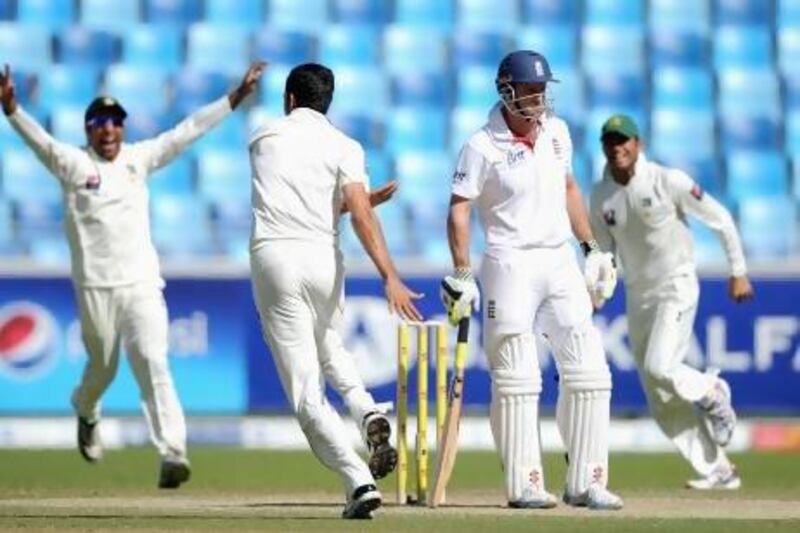Considering they started 2012 as the No 1 Test side in the world before conceding that title to South Africa during a year in which they lost seven Test matches, for England to go into 2013 on a high is quite some going.
That is the power of a Test series victory over India, and while this was by no stretch of the imagination a great Indian side, that should not detract from the effort put into winning there for the first time since 1985, coming from behind to achieve the 2-1 victory, and becoming the first touring side to triumph on Indian soil for eight years.
The success was built on brave displays with bat and ball, determination when their backs were against the wall, and patience and tenacity.
A lot of what England produced with the bat in India appeared to be a reaction to their turbulent experiences at the start of the year.
It was certainly a wiser team than the one that shipped up in the UAE back in January confident of seeing off Pakistan and demonstrating just why they were the top dogs in the format. Three, spin-induced, batterings later, the reality check had been given.
To say England struggled against the turning ball in Dubai and Abu Dhabi is a bit of an understatement.
The side who had dined out on Australia and India's bowling attacks over the previous 12 months were found out in brutal fashion as their average score of 190 per innings demonstrated.
It initially looked as if it was going to become more of the same in India as Pragyan Ojha ran through them in the first innings in Ahmedabad, taking five wickets as England were forced to follow on having mustered a paltry 191.
But from then on England batted much more intelligently. Led by their excellent captain Alastair Cook, whose average in the series of 80 would have been more but for the two poor decisions he received from the umpire Kumar Dharmasena in the fourth Test in Nagpur, they batted calmly, blocking when necessary, and punishing the bad balls.
Kevin Pietersen, back in the circle of trust after his brief period on the sidelines over his alleged inflammatory text messages to his buddies in the South Africa changing rooms, was superb with his 186 in Mumbai, but every member of the top order dug in and contributed at some stage.
It was the thoughtful batting that had been nowhere to be seen in the UAE, and was only seen in patches in the 1-1 series draw with Sri Lanka.
Lessons had been learnt. Yes, India's mediocre attack lacked a Saeed Ajmal to scare them, but England had shown before that the slow ball did not have to turn much, or at all, to unnerve them.
Following the first innings debacle in Ahmedabad, England's scores from then on, not including their low run chases to win the second and third Tests, were 406, 413, 523, 330 and 352 for four declared.
The UAE was undeniably a wake up call, and England have worked on their failings since then.
It would be wrong to say they have completely exorcised their spin demons – only batting untroubled and scoring at will on a dusty track against Pakistan's Ajmal, Abdur Rehman and Mohammad Hafeez would prove that.
But enough was shown in India that they are on the right track again.
Getting beaten heavily in the UAE hurt. A lot. But the consequences of those three losses have seen England finish the year in good shape.
Losing is never a good thing in sport, but using a setback as a lesson to learn from is a positive and it sets up Cook's men nicely for the upcoming series against New Zealand and their Ashes encounter with the Australians.
Follow us
[ @SprtNationalUAE ]





